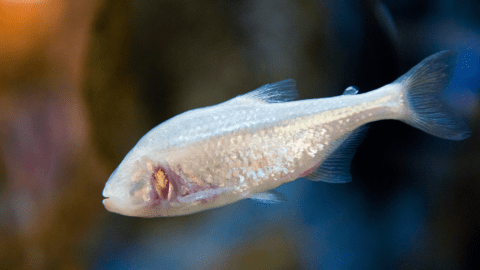This awesome species of fish gets by on 2 hours of sleep

A type of blind Mexican cavefish, a subspecies of the Astyanax mexicanus, is a pretty awesome little species. Why? Because they only sleep two hours a night and are totally fine with that. Researchers are studying the fish in order to figure out what it’s regulation of a brain protein called hypocretin, or HCRT if you’re into that whole brevity thing. Potentially, this study in the fish’s HCRT could lead to less sleep for humans.
What makes the cave-dwelling strain of the Astyanax mexicanus interesting to researchers is that their sleep habit seems to be a result of their environment, as the surface fish variety of the same species (if you will) don’t have the same schedule at all.
Per the study:
Sleep lengths vary a lot throughout the animal kingdom. Humans fall right around the middle, needing on average 8 hours of sleep a night, while over on the far end of the spectrum the brown bat requires almost 20 hours of sleep. But sleep varies so widely and randomly — possums need close to 18 hours of sleep while elephants get by with just 4 to 5 hours.
You can read the full study here.





